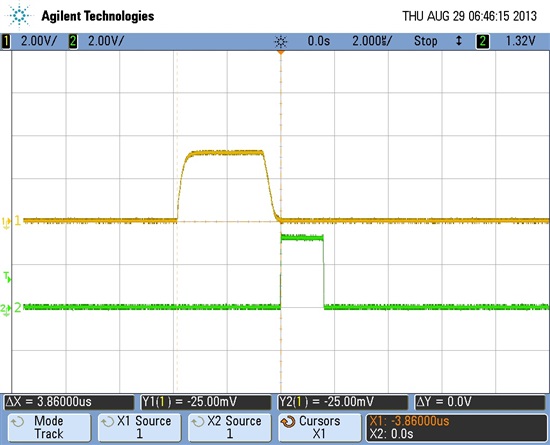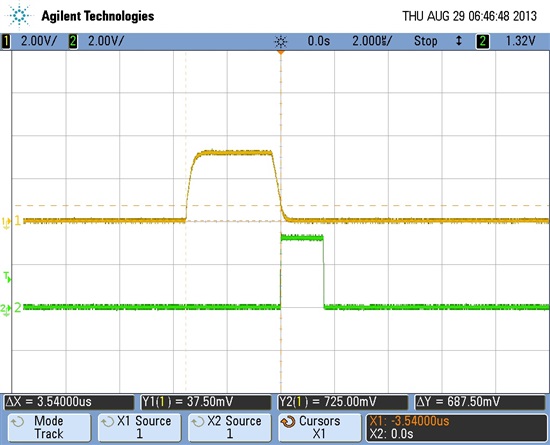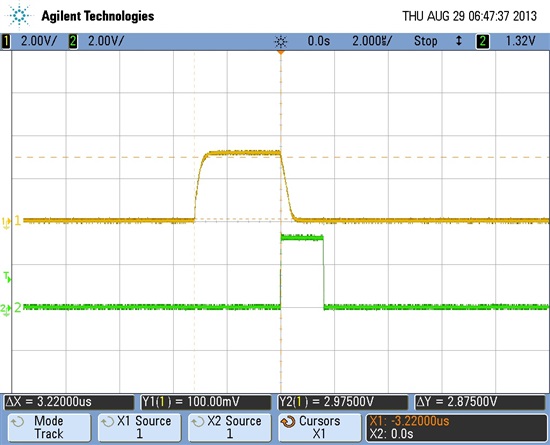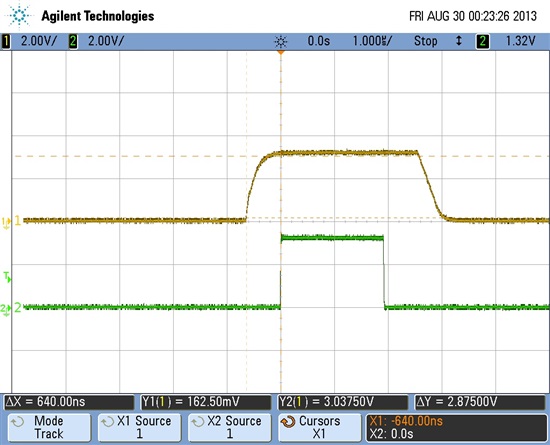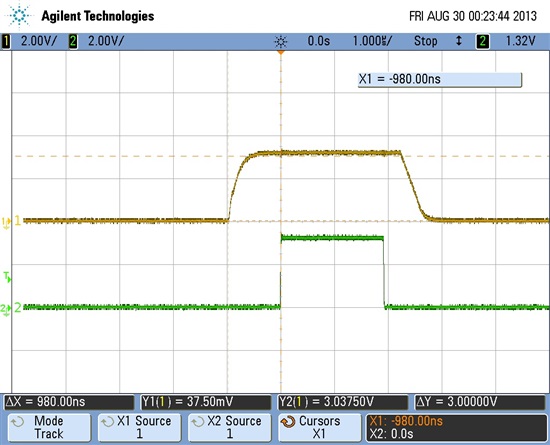Here is the code to setup, but I couldn't get synchrnoized output. The outputs between two PWMs has about 1 to 2 us variation for each setup. Once it is setup, the PWM pulse will be kept in same distance. I used Sync_Global settings, update, sync time. Not works.
// Configure the GEN3 to up-down without synchronization.
PWMGenConfigure(PWM_BASE, PWM_GEN_3,
(PWM_GEN_MODE_UP_DOWN | PWM_GEN_MODE_GEN_SYNC_GLOBAL));
...
Set registers
...
// Configure the GEN0 to up-down without synchronization.
PWMGenConfigure(PWM0_BASE, PWM_GEN_0,
(PWM_GEN_MODE_UP_DOWN | PWM_GEN_MODE_GEN_SYNC_GLOBAL));
...
Set registers
...
// Enable the M0PWM6 and M0PWM0 output signals.
PWMOutputState(PWM0_BASE, (PWM_OUT_6_BIT | PWM_OUT_0_BIT), true);
// Enables PWM generator blocks
PWMGenEnable(PWM0_BASE, PWM_GEN_3);
PWMGenEnable(PWM0_BASE, PWM_GEN_0);
// Reset PWM generator blocks
PWMSyncUpdate(PWM0_BASE, PWM_GEN_3_BIT | PWM_GEN_0_BIT);
// Reset PWM generator blocks
PWMSyncTimeBase(PWM0_BASE, PWM_GEN_3_BIT | PWM_GEN_0_BIT);


